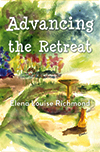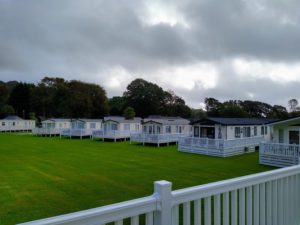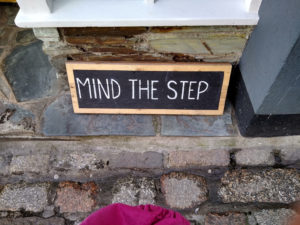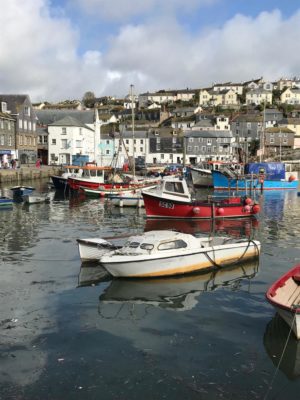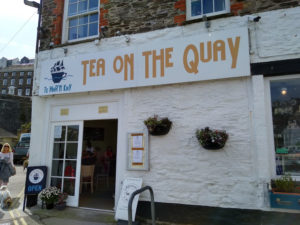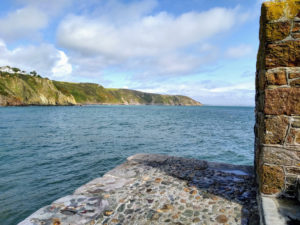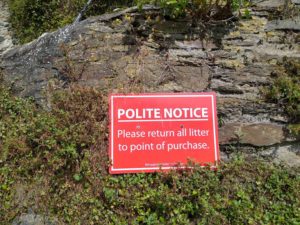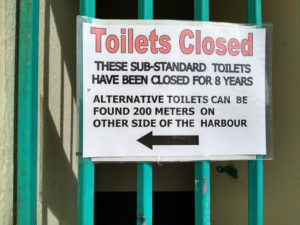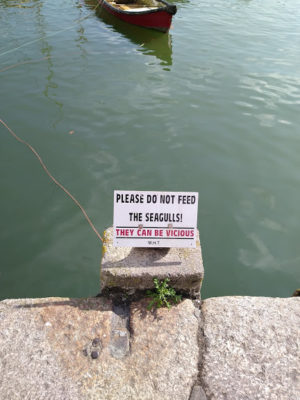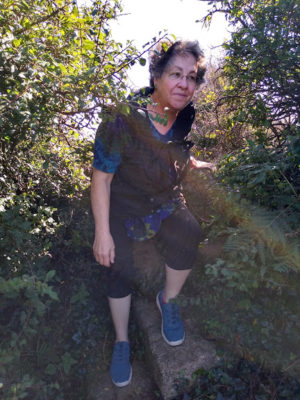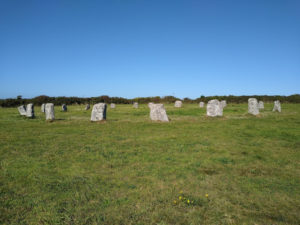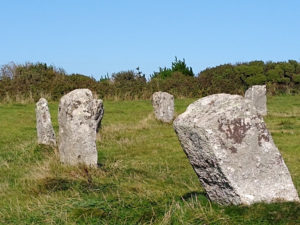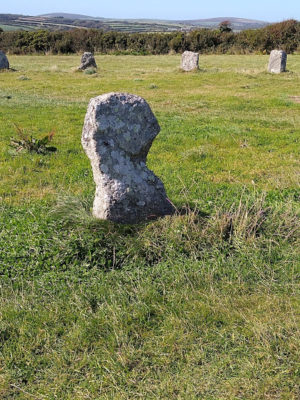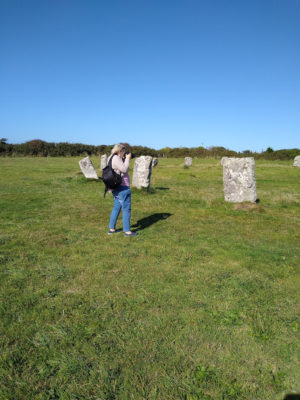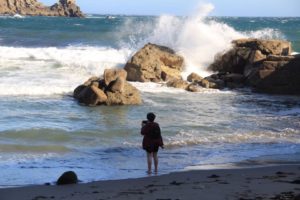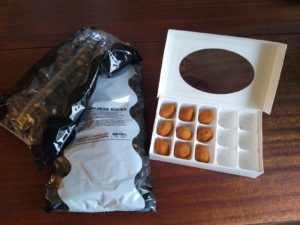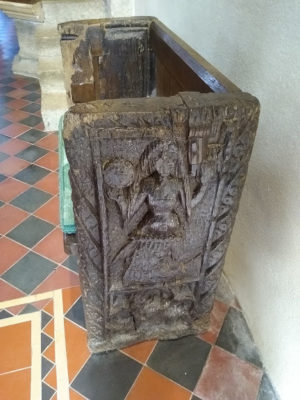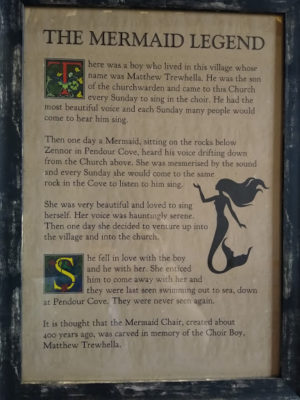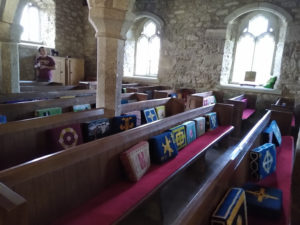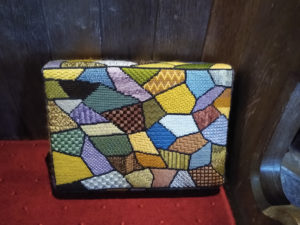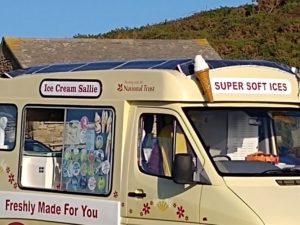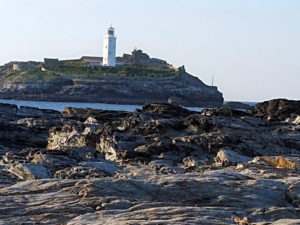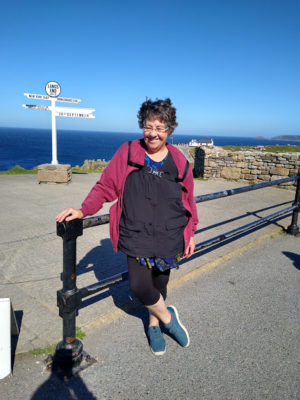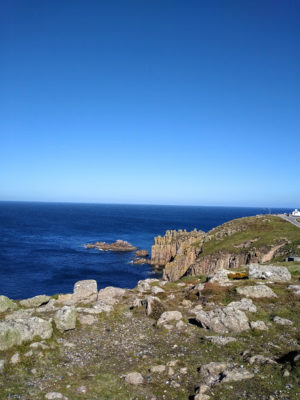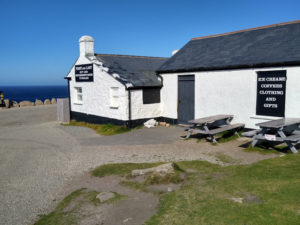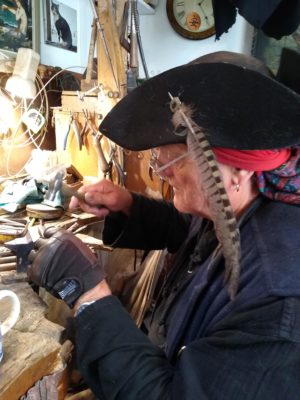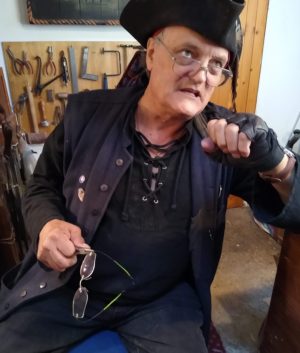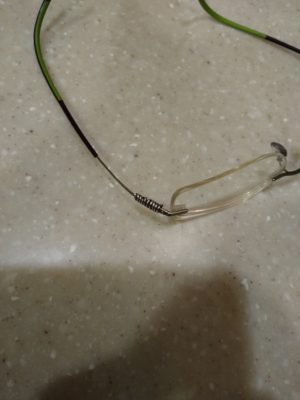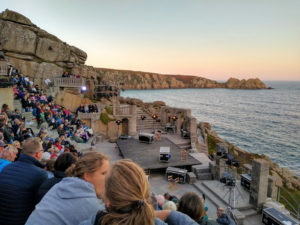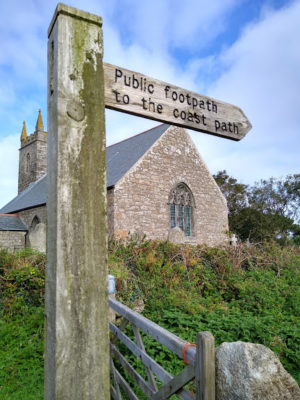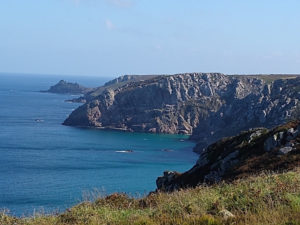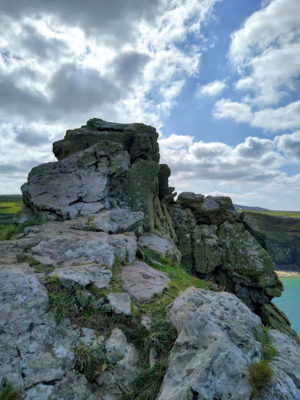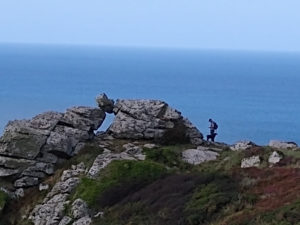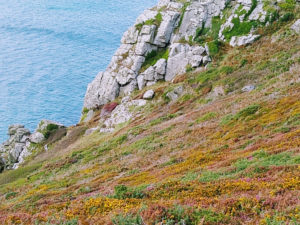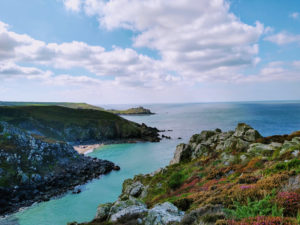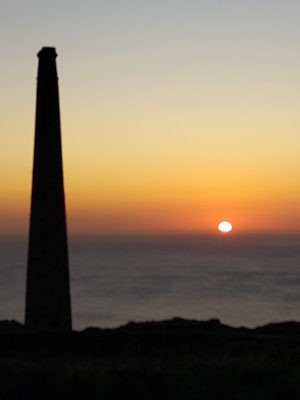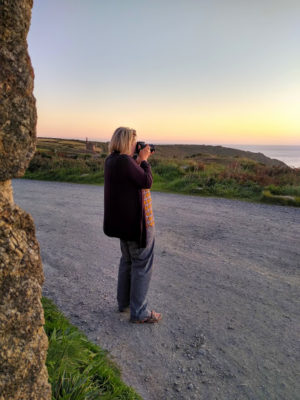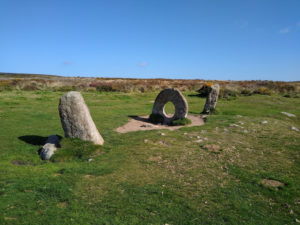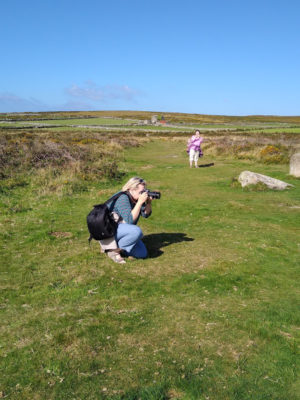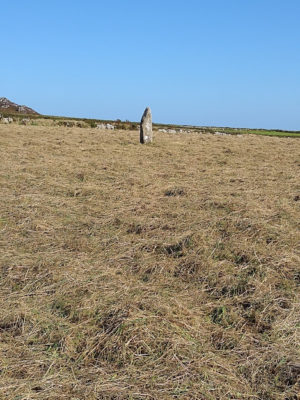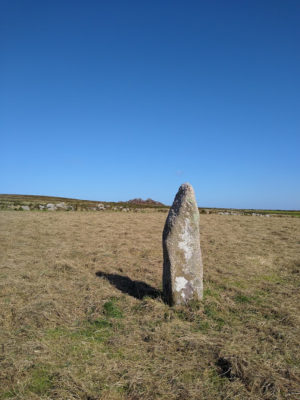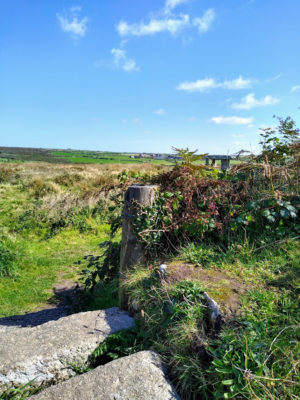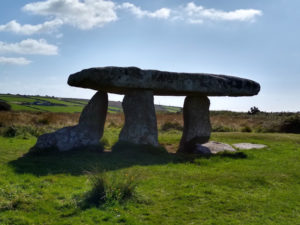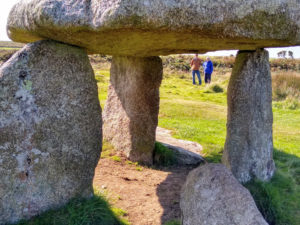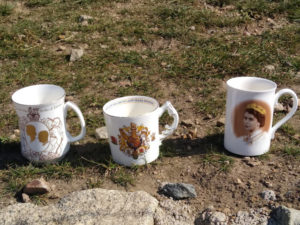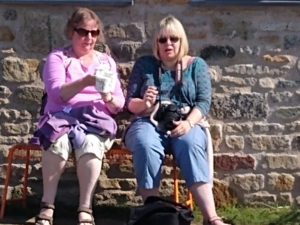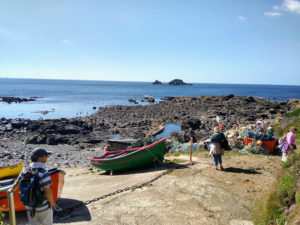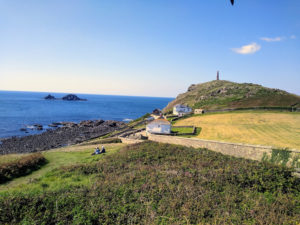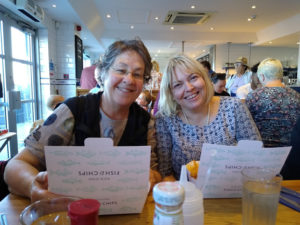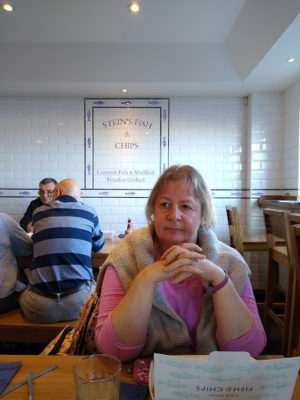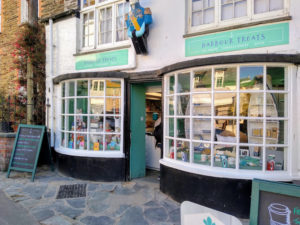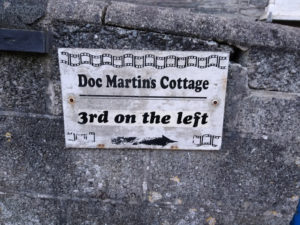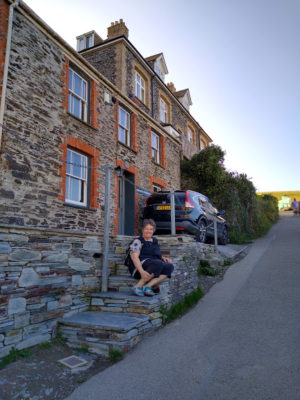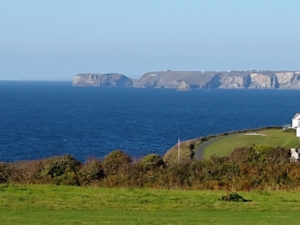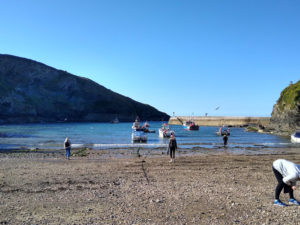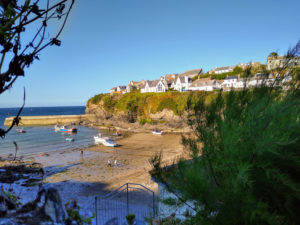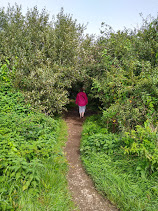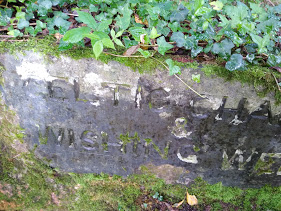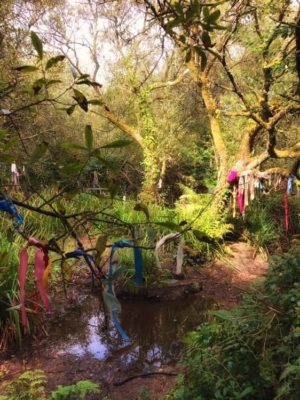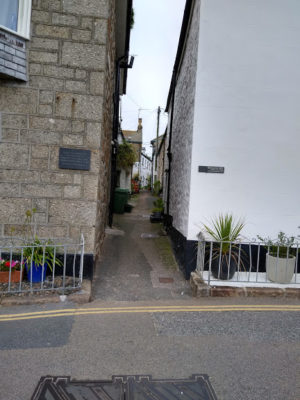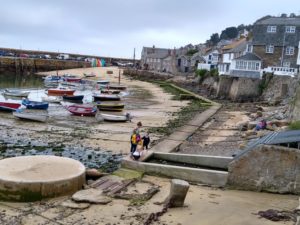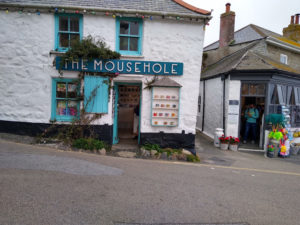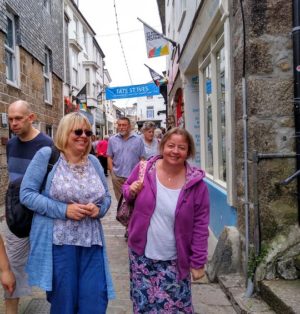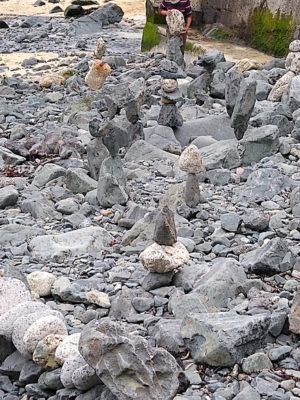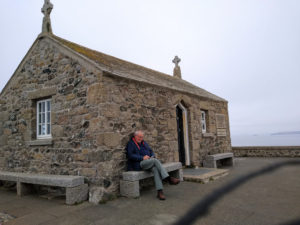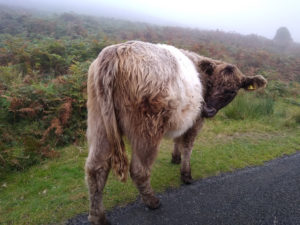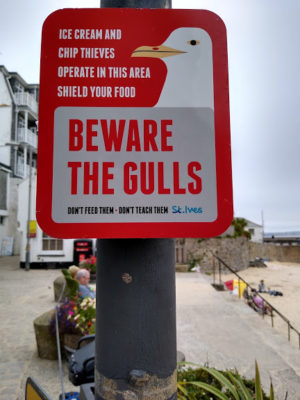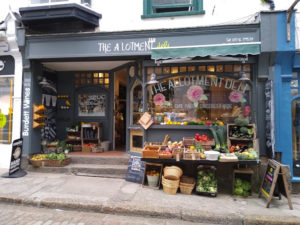A Night in the Caravan Park and an Experience of a Toilet
There are two Marks and Spencers in all of Cornwall; we stopped at the one in St Ives to get whatever we might need for the last evening of the holiday. We had to choose food for two meals, use the toilets and have tea in the café– one always has tea in the café when travelling with Sue and Wendy—and then use the toilets again.
Wendy had booked us into a caravan park in Pentewan (pronounced Pen-chew-an) because the favored B&B in Megavissey was unavailable. This was to be a contrast to a week in a stone holiday cottage on the west coast of Cornwall. Remembering a caravan park in an episode of Inspector Lynley, I was disappointed that ours wasn’t tackier –for the, you know, full experience. To make up for that, tho, it was charm free.
A caravan is a mobile home. If it’s planted somewhere, that’s a static caravan. The ones on the go are called touring caravans. They are both basically sardine tins. Our caravan purported to hold as many as six people but only comfortably if they were tiny children or supermodels. The bedroom doors all opened into each other so we could only come and go one at a time. Just moving in for a night was a French farce.
My matchbook room held two bunks, each the size of half a twin bed. I had to walk sideways to get to a bed and once actually in bed, I could have passed for a mummy. When I wanted to turn over I moved in installments, first the top half, then the bottom, then the nightshirt and always bumping a wall or headboad. Around midnight I was awakened by explosions of fireworks down near the Megavissey harbor. Fireworks! Wendy and Sue got up to watch them but I wrapped my head in my pillow, which knocked over the lamp, and groaned.
The next morning we went into the little fishing village of Megavissey. Sue chatted up the proprietors of the favored B&B while Wendy and I walked along the quay. I remember Wendy’s mother, Pamela saying, “Megavissey is a lovely little village.” She and Mervyn would come from Harrowbarrow of a Sunday, have tea, have a wander, have an ice cream and sit together on a bench.
In Hurley books I had a long talk with Emma (“I’m Emma with the scarf. I’ve worked here for 20 years, always wear the scarf”) about tracking down used and out of print books about the French resistance.
Wendy found a café called Tea on the Quay. While we waited for Sue to join us, I used a toilet around the corner and had what Wendy later referred to as my “toilet experience.” I was seated and ready to unseat when I couldn’t find the toilet paper. Then someone started to enter the room and I had to reach forward and push the door shut. When I finally located the toilet paper, I couldn’t figure out how to flush the toilet. Finally I pushed open the door where a man and woman stood waiting.
“I’m so sorry,” I brayed in my crass American accent. “First I couldn’t lock the door, then I couldn’t find the toilet paper and now I don’t know how to flush and I don’t want you to have to come in.”
The woman was very nice. She stood in the doorway and pointed at things that might be the flush until we found it. I slithered past her companion as he looked politely at the boats in the harbor.
Sue joined us at Tea on the Quay where I ordered for us at the counter. When I sat back down, I found myself facing the couple from my toilet experience so I shaded my face and made everyone move. We had a splendid view of the harbor and I had the best gluten free scone there ever was.
After Megavissey we drove through Gorran and High Gorran to Gorran Haven, which seemed to be all pretty much the same place. One narrow road winding around cottages until it got to the beach.
Sue, looking at the map: “When we get there the car park is on the left at the top of the hill.”
Wendy: “Is it?”
Elena “Is it?”
Sue: “We parked there the last time.”
Wendy: “Did we?”
Elena: “Did we?”
The tide was in and the brick quay was wet and slick and without “namby-pamby guard rails” as Wendy observed. It would have easy to topple in, that not being a fall my nurse friend Susan would have anticipated when she exhorted me: “Don’t fall!”
I was much more comfortable on the sandy beach where a game of fetch was going on: two terriers chasing a stick into the water and bringing it back together, each with an end in its mouth. They dropped it in the sand and danced and barked until it was thrown in again. Two little mates, Alfy with a deep bark and Ruby with a high yip. Over and over they fetched the stick and pranced back with it. On one trip they dropped it at my feet and shook water all over me.
Wendy drove us home through Harrowbarrow, the village of my great- grandfather. It looks so different from when I was there in 1980 and 1991. It seems like less of a village and more like a bunch of cars parked along a narrow road and obscuring a few cottages. The cottage I stayed in with Hazel, the first member of my English family that I met, looked unloved. It broke my heart.
We arrived home late Sunday. I was due in London the next morning. I didn’t want to leave and because of this I didn’t want to pack so I stuffed everything in my suitcase figuring I would sort it out in London because god knew there wouldn’t be anything fun to do without Wendy and Sue.
 RSS Feed
RSS Feed